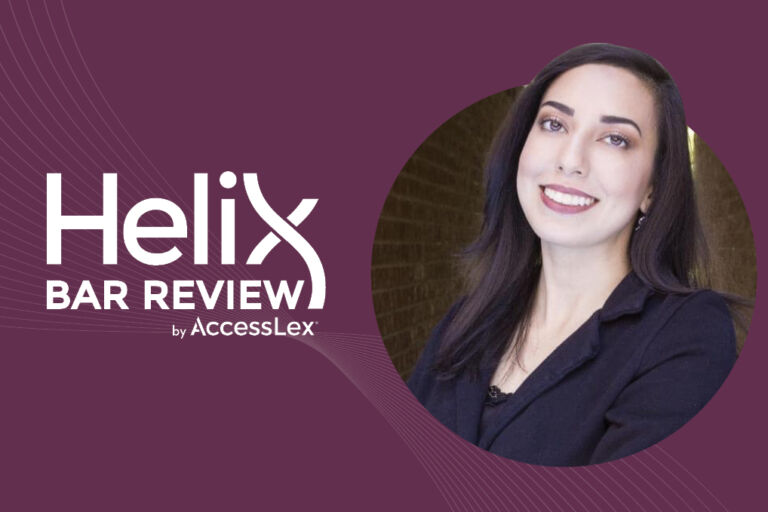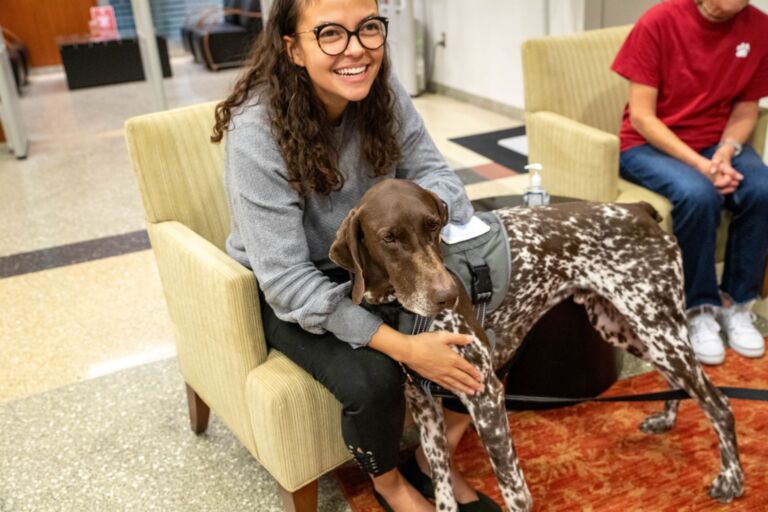By Deborah Sanders
There’s been a lot of talk lately about the impact of relaxed admissions standards at law schools and the effect of those new standards on bar-pass rates. I have taught bar exam students, both first-time takers and re-takers for more than 12 years. So I would like to enter into this festering debate as a person speaking from a place of authority and deep understanding of the pool of issues this topic harbors.
I begin with the idea that comparing the bar exam performance of current students to prior generations creates a flawed calculus. First, the present bar exam, in all of its forms adopted across the country, is a creature of relatively modern construction, so saying that the recent and steady decline in bar passage rates is an indicator of a weakening student demographic is a twisted and simplistic conclusion. When I think of the statesperson ideal of the yesteryear lawyer, I am a bit more inclined to hold reverence for John Adams than anyone from the post 1970’s, when the modern test had its beginnings. To enter the practice of law, Adams had to spend some time apprenticing with a real lawyer. The test today consists of an exam administered in two parts: a written set of essays and a multiple-choice exam. The multiple choice exam (MBE) was written in the 1970’s by the National Conference of Bar Examiners and has since been adopted by most states counting, at least as part of the bar exam score.
Much as the legal community, unwelcoming as it can be, assumes that an inferior student population is the problem. In my opinion, the fix is not as much in the student population but rather with the multiple-choice portion of the test. At least essays attempt to replicate the task of real lawyering by conjuring dilemmas that test a student’s ability to find problems facing clients and offer an array of solutions. I would argue that the MBE does not measure any skill I want my lawyer to have. In fact, it’s a maddening exercise in silliness. The first thing I teach my students is that the MBE is not real, not “A” or “B.” The second is to shift away from looking for the truth as the law goes, and instead to look for what the examiners want you to see. It works every time. What does that say? Anyone who has ever read an explanation to an MBE question’s answer knows the dreaded “A” and “C” are both right but “A” is better. What could that ever predict in terms of ability to practice law? If a portion of the test purports to be objective, there should be only one possible answer, and a student should be able to know what it is. If they cannot gain that skill, failure makes sense.
The natural counter argument will be that bar students were previously able to pass the exam in better numbers in the modern era, and that leads me to my next point. Somewhere in the wisdom of an evolving society, we decided that a varied and rich cultural representation of students in school settings, and the professions they serve, better promoted our national ideal. Those arguing that the state of the national bar was better in the 1970’s might be the same people defending this test. But much has changed since the 1970’s, and at least socially much of it has changed on purpose. Some of the purposes and justifications for opening up barriers to higher education to students across the vast cultural expanse include equalizing access and opportunity for the individual, but most really speak to the need to have the various professions more closely resemble the social groups they serve. People can relate to wanting a lawyer or doctor who looks like them and who understands their experience in the world. Sometimes, that desire speaks to a practical need, like bridging a language barrier, sometimes it just offers comfort and fosters trust. That’s a real thing, not just an excuse for academic slack.
I know the impulse is to claim that the difficulty of the exam ensures the quality of person and distinction associated with lawyering. Lawyers are nothing if not impressed with the exclusivity of their club. But there are just so many reasons this impulse is wrong. First, if the test is simply difficult because it’s illogical, the lawyering population is not better served. Second, the margin of passing and failing scores is often so close overall, that those passing are usually in no way better potential lawyers by any meaningful measure. Unless someone “nails it” or falls flat on their face, the margin between passing and failing students is usually very small. I hate to break that to all of those people looking down on their failing classmate. If you have the financial resource to learn the tricks of the exam, you probably have at least a better chance of squeaking by than someone who does not. What a strange goal though, and what a perfect way to keep the gate shut.
The multiple-choice test is an artificial universe of other worldly perversions of legal conundrums. After 12 years of teaching bar students, I am convinced this part of the exam is not any real measure of deductive legal truth or ability. Therefore, as a test of legal competence, it is truly flawed. But as a barrier, I think it can be pretty effective. We can do better. But since we are not doing better, I continue to teach students to master its intricacies through an approach based on exposure rather than knowledge.
I am uniquely qualified to offer my view, not just as a teacher of bar students but as a person whose entry into the profession met with resistance. When I was in law school, except for my status as a white American, I looked nothing like the majority of my classmates. I was an older student, and a single mother. I had no economic privilege and in fact, I was technically economically “under-privileged.” Let’s just say I worked, both a full-time job and a side gig cleaning offices on the weekend. I also went to school full-time while raising my son alone. My academic background was not so far in the background and it was not especially traditional in terms of lawyering. I had an English Degree. Before that I graduated high school some decades prior from a performing arts school as a classical dancer.
So, while I was not what you might usually consider a minority in law school, even among the various groups of minorities, I was an outlier. I suffered the discrimination that comes from the fear of letting someone else in the club. Sometimes I brought my son to class with me, both to expose him to the experience of striving and because of practical need. I was shunned, sometimes openly insulted. A girl once remarked that law school demands were not suitable to adjustments in the classroom for my sort of needs. I imagine she was put off by the presence of my son in her class. Well I graduated ahead of her, by a mile. In fact, there were only 17 people total who graduated ahead of me in a class of over 250. None of them were working two jobs or raising a child alone. Most of the conventional law school types had a mediocre grade point average and displayed a marginal commitment to the work. I turned out to be a pretty good lawyer, but more than that, my unique posture has made me a really good teacher. I always assume my students have something equally magnificent to contribute, something that no one else has. I cannot say I have ever been wrong.
None of this suggests I believe that there is some entitlement to practicing law. In fact, I think the growing emergence of institutionalized “Academic Success Programs” in law schools across the country as an approach to supporting poor admissions standards does a disservice to students and lawyering in general. I do not believe everyone has an inherent right to be a lawyer, only a right to access the opportunity. Most lawyers, and people teaching lawyers in training do crave a return to the distinguished status of the lawyering craft. As lawyers and teachers, we all reject the greedy machine of student financial aid mongers. Naturally some of these practices filter into the bar-taking population. But my point speaks more to the failures of the test as a true measure and an ultimate “bar” to obtaining a license for people who are gifted and qualified and unique, those with textured life experiences that the profession needs.
The test needs to change. It does not need to be dumbed-down. In my opinion it is already pretty dumb. But it needs to be written to test real and absolute legal concepts, those that generations of lawyers respect and know. If we insist on reaching back to an ideal, let’s at least pick the right one. The bar exam should test a student’s knowledge from a point of common mastery. It should not be a sanctioned barrier but a predictable measure of ability.
—
Deborah Sanders is owner of Bar-None Prep and is based in New Jersey. She is writing a book on “The Spiritual Path to Passing the Bar” and her writings can be read at www.barexammaster.com






